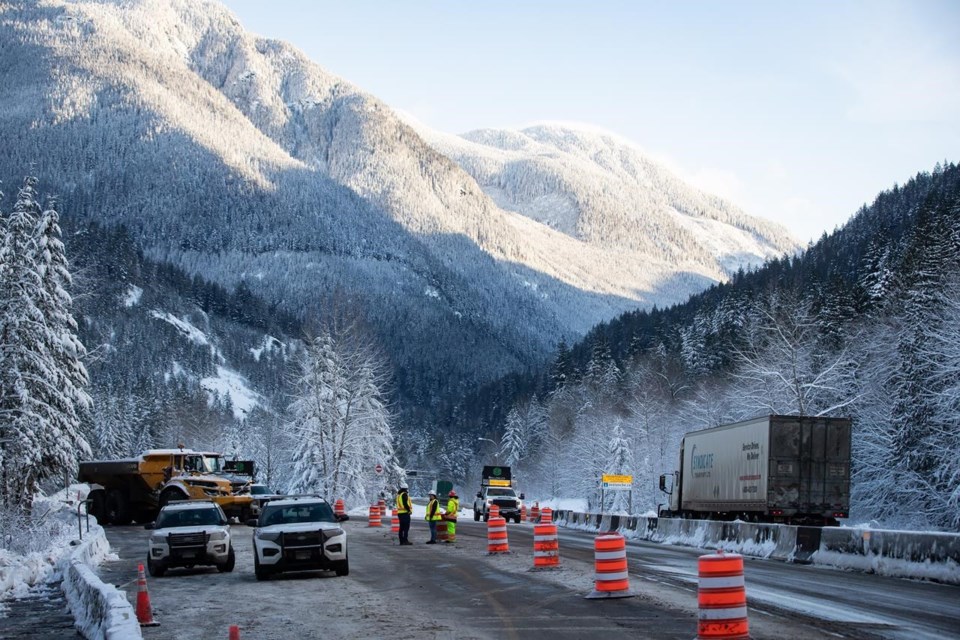VICTORIA — British Columbia is again extending its provincial state of emergency that's been in place after torrential rain caused severe flooding and mudslides last month.
The province says in a news release that multiple highways are still damaged, so the emergency order, which gives the province additional powers, is being extended to Jan. 11.
Public Safety Minister Mike Farnworth says in the release that while significant progress has been made on repairs, there's still more to do to reopen highways and get people back into their homes.
The order restricting travel on the Coquihalla Highway, or Highway 5, and on Highway 99 will remain in place.
The Coquihalla Highway, a major link between Metro Vancouver and southern British Columbia to the rest of the province, was reopened on Dec. 20 following round-the-clock repairs, but only to trucks and intercity buses.
Farnworth earlier announced a two-week extension on Dec. 13 to the provincial state of emergency as crews continued work to reopen highways and while traffic on some major routes was limited to essential services.
In the release announcing the latest extension, Farnworth thanks British Columbians "for their patience and compliance during these challenging times, and to the crews who have worked tirelessly to get these highways back open."
Travel from the junction of Highway 99 and Lillooet River Road to the BC Hydro Seton Lake campsite access in Lillooet is open to all traffic, but vehicles weighing more than 14,500 kilograms are not permitted.
Vital road, rail and port links were severed for weeks when a series of record-breaking rains last month deluged southern B.C., flooding highways and farms and forcing about 15,000 people to evacuate their homes.
This report by The Canadian Press was first published Dec. 27, 2021.
The Canadian Press


